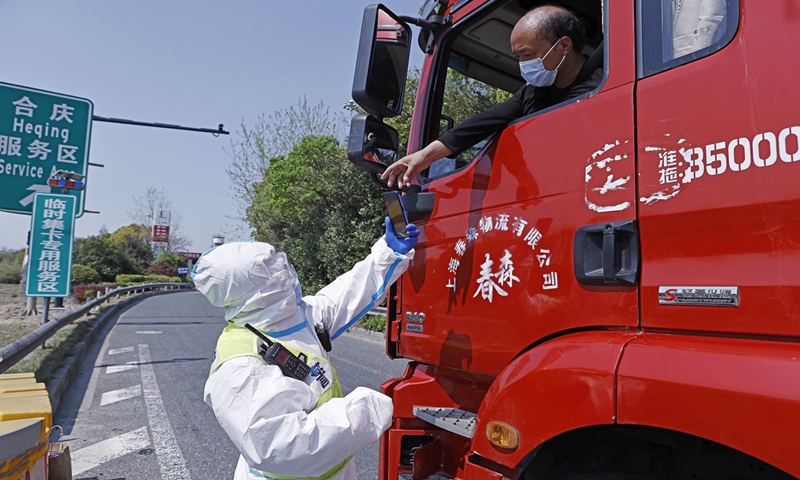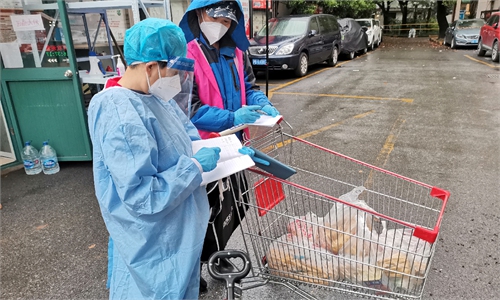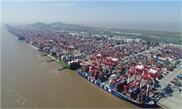
A policeman checks the nucleic acid test result of a truck driver at Heqing expressway service station in Shanghai, on April 11, 2022. Photo: VCG
A senior Chinese official said that China should issue a sufficient number of national unified travel passes and not restrict transportation under the excuse of waiting for nucleic test results, as officials beefed up efforts to minimize the negative impact of coronavirus controls on the economy.
During a teleconference on Monday held to maintain smooth logistics, Vice Premier Liu He stressed that nucleic acid tests with a sampling interval of over 48 hours should be recognized across the country, and that logistics workers should not be restricted while waiting for test results.
Liu's stress on unified travel passes and smooth logistics, coming after China's transport ministry unveiled unified raw materials transport passes, came as the stringent management of trans-regional logistics impacted transport companies.
A manager with a Shanghai-based logistics company surnamed Zhao told the Global Times that although most areas aren't blocking roads, many truck drivers are still required to show local travel passes and 24-hour nucleic test results.
"Last Thursday, we had two trucks delivering goods from Shanghai to Ningbo, and the drivers were asked to conduct a 21-day isolation because they came from medium- and high-risk areas," he said. "Now, many drivers don't want to work. Only one-third of the drivers are now working."
According to him, the cost of operating trucks is very high -- hundreds of yuan each day, and the company is losing money.
Wang Chikun, an independent economist, told the Global Times that the quarantine requirements have brought financial losses and psychological pressure to drivers, which caused many to stop taking orders. Some companies shifted to railway transport.
The problem of logistics restrictions has in turn brought obstacles to many companies, especially those that are heavily reliant on transport, such as the automobile industry.
Great Wall Motor's Tank 300 vehicle has suspended production, and so has electric car company Nio due to logistics restrictions, Zhang Xiang, a research fellow at the Research Center of Automobile Industry Innovation under the North China University of Technology, told the Global Times on Monday.
To speed up production resumption in Shanghai, the government has worked out a "white list" of 666 leading manufacturers there to restart factory operations, as they churn out auto parts, integrated circuits, consumer electronics, biomedicine and more.
Wu Chaoming, chief economist at Chasing Securities, told the Global Times that the white list rollout are more "targeted" measures to support companies that have been hit hard by the pandemic, especially those that have a long industry chain.
After the teleconference, the Ministry of Industry and Information Technology noted that it would implement the details of the new guidelines, and ensure stability of key supply chains to prevent the economy from suffering from an outsize slump.



